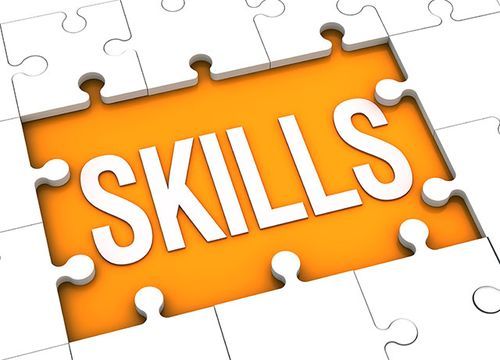Eight wonderful and scientifically proven tips that you can easily employ during your academic life to ensure that you attain the most desirable outcomes as you perform your studies.
Many students need help finding an approach that works best for them when it comes to studying. Fortunately, research has identified several effective strategies for learning and retaining information. This article will discuss eight scientifically proven tips for effective studying that students can incorporate into their study routine to achieve better academic outcomes. These tips have been extensively researched and are supported by a wealth of evidence from cognitive psychology and educational neuroscience. Whether studying for a test, completing a research paper, or preparing for an exam, these tips can help you maximize your learning and improve your performance. So, let us dive in and explore these tips in more detail. Peachy Essay will serve as our guide as we delve into the world of scientifically proven study tips.
Practice Retrieval

Practice retrieval is a highly effective studying technique proven by research to improve the long-term retention of information. By actively recalling information from memory, rather than simply re-reading or reviewing it, students can better understand and internalize the material they are studying. Retrieval practice is more effective than other common study methods, such as highlighting and summarizing, because it helps strengthen the neural pathways associated with recalled information.
To incorporate retrieval practice into your studying, try taking practice quizzes or writing out what you remember about a topic from memory before reviewing your notes.
These exercises help identify areas where you may need to focus your studying and reinforce what you have already learned. By regularly practising retrieval, students can improve their ability to recall information in the long term, leading to improved academic performance and a deeper understanding of the material they are studying.
Spaced Repetition
Spaced repetition is a highly effective studying technique that involves reviewing information at increasingly longer intervals over time. Research has shown that this method can improve the long-term retention of information by strengthening the neural pathways associated with the material being studied. Spaced repetition can be beneficial for studying complex or challenging material, as it allows you to revisit the material multiple times over an extended period. By spacing out your reviews, you give your brain time to absorb and integrate the information into your long-term memory fully.
Active Learning
Active learning is a highly effective studying technique involving meaningful engagement with the material, such as through discussions or problem-solving. Research has shown that this method can lead to deeper learning, better retention of information, and increased academic performance. To incorporate active learning into your studying, finding ways to engage with the material actively is essential. This can include discussing the material with a study group, working through practice problems, or explaining the concepts to someone else. By actively engaging with the material, you can reinforce your understanding of the concepts and develop a deeper level of comprehension. Active learning is particularly effective for complex or challenging material, requiring thinking critically and practically applying the concepts. It also allows for more significant interaction with the material, making it more exciting and engaging.
Sleep
Sleep is essential to effective studying, as it plays a critical role in memory consolidation. During sleep, the brain consolidates newly acquired information and strengthens the neural connections that underlie learning and memory. Research has shown that adequate sleep is essential for effective studying, as it can improve learning and memory. Aim for 7-9 hours of sleep per night to give your brain the rest it needs to consolidate the material you have been studying effectively. Additionally, it’s vital to avoid studying right before bed, as this can interfere with your ability to fall asleep and may negatively impact the quality of your sleep.

Do you want to boost your English skills?
Sign up for lessons with a trained native teacher here:
Exercise
Exercise has been shown to improve cognitive function and memory. Incorporating exercise into your study routine can enhance your ability to learn and retain information. To incorporate exercise into your studying, try taking a brisk walk or light stretching before studying.
Breaks
Regular breaks are critical to effective studying, as they can help improve focus, concentration, and overall productivity. Research has shown that taking breaks every 45-50 minutes can help improve learning and retention of information. To incorporate breaks into your studying, try setting a timer for 50 minutes and then taking a 10-minute break before returning to your studies. During your break, try to engage in relaxing and refreshing activities, such as stretching, taking a short walk, or meditating. This can help clear your mind and improve your ability to focus when you return to your studies. Regular breaks are essential when studying for long periods, as they can help prevent burnout and reduce the risk of fatigue and mental exhaustion. By pacing yourself and taking regular breaks, you can maintain your energy levels and stay engaged with the material throughout your study session.
Environment
Your study environment can impact your ability to learn and retain information. Research has shown that studying in a quiet, distraction-free environment can improve learning and memory. To optimize your study environment, try finding a quiet place to study and minimize distractions such as social media or television.
Mindset
Our mindset can significantly impact our ability to learn and retain information as students. Research has shown that adopting a growth mindset, which emphasizes that intelligence and abilities can be developed through hard work and perseverance, can lead to better learning outcomes. To cultivate a growth mindset, try focusing on effort and progress rather than on grades or test scores.
In conclusion, effective studying is essential for academic success, and there are scientifically proven tips that can help students study more efficiently and effectively. Some tips include creating a study schedule, using active recall techniques, taking breaks, getting enough sleep, and staying hydrated. By implementing these strategies, students can improve their ability to retain information, increase productivity, and ultimately achieve better grades. Additionally, it’s important to note that effective studying is a skill that can be developed with practice and consistency. By incorporating these tips into their daily routine, students can set themselves up for long-term success in their academic pursuits.








